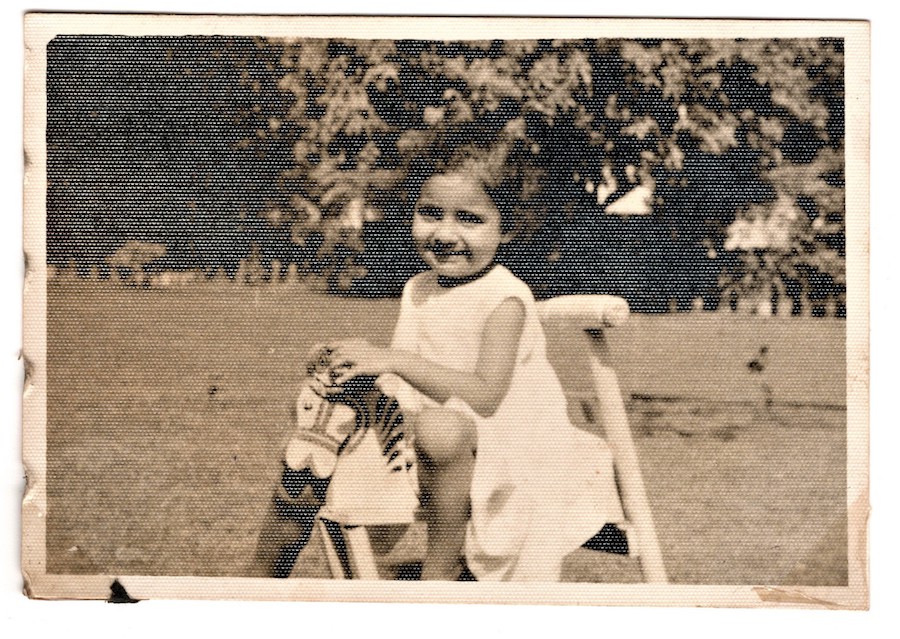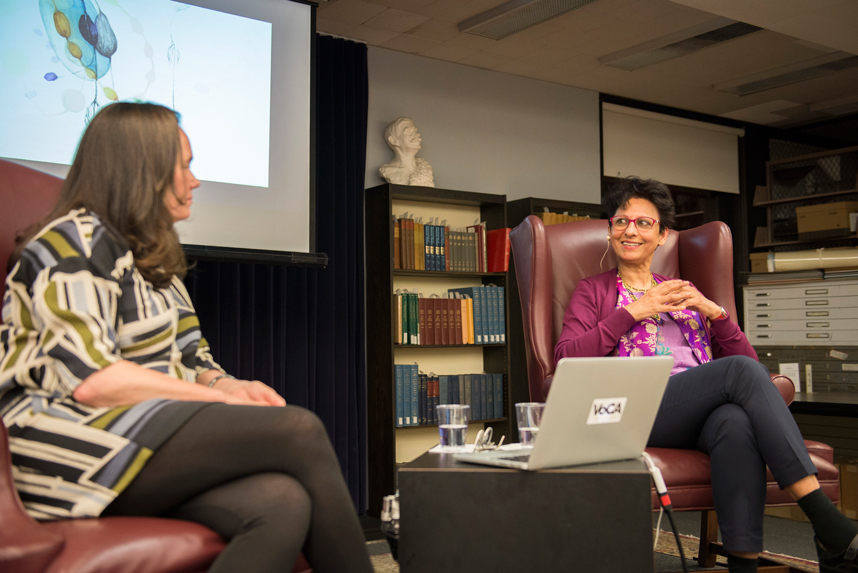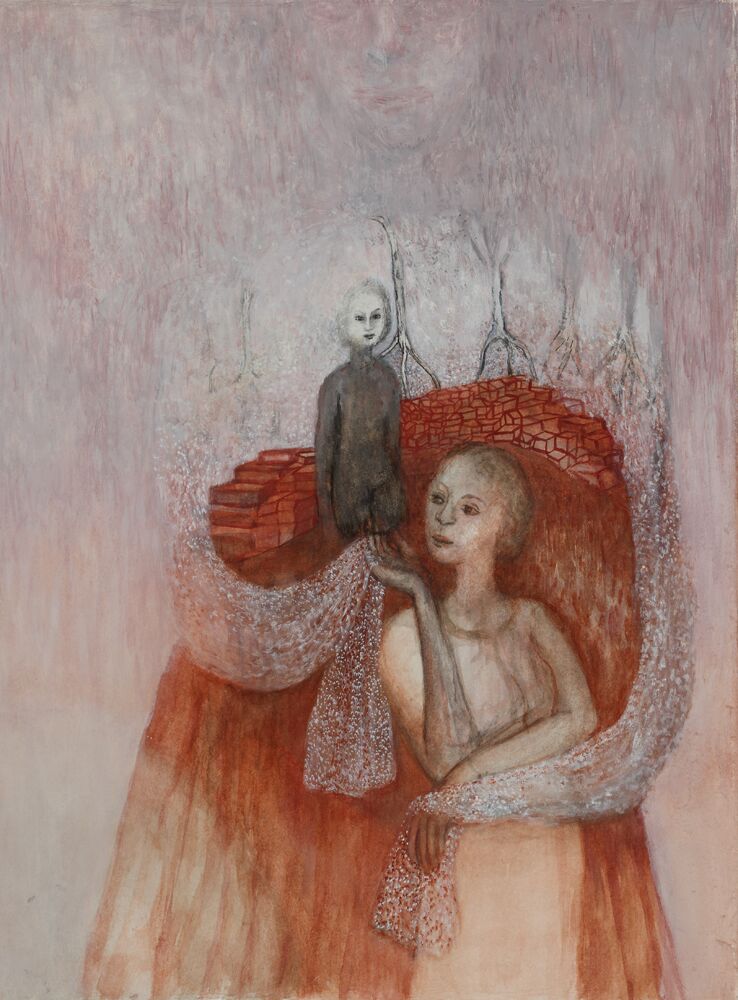This week’s contributing author, Charlotte Meyer, was born in England, and currently lives and works in Brooklyn, N.Y. She completed her undergraduate degree in Textiles from Nottingham Trent University in 1989, and graduated from Pratt Institute with honors in Sculpture and Liberal Arts. She is currently represented by Opus Projects, is an Artist Guide at Judd Foundation, and was a Visiting Scholar at Dedalus Foundation.
For VoCA’s CALL program collaboration this fall, VoCA board member Robin Clark interviewed artist Tara Sabharwal at Fales Library & Special Collections, NYU. This was the third edition in the partnership series with Joan Mitchell Foundations Creating a Living Legacy (CALL) program. The engaging conversation revealed the intricate link between Sabharwal’s life experiences and her art, the defining moments integral to her process and development, and her desire to recapture an early childhood memory.
Sabharwal selected a black and white photograph to begin with, showing an image of herself as a child on a rocking horse. She recounted spending hours rocking back and forth, repeating the words “it’s so beautiful,” over and over. Her childhood was filled with happy moments like this, surrounded by family and nature, but as she continued to explain there would be difficult times ahead, and her work is what would get her through these challenging periods. The first significant life change occurred at age thirteen, when she sustained a head injury and her parents divorced, and it was at this time that she immersed herself in the practice of drawing. This process facilitated recovery by creating a “honey pocket” of time she could escape into and explore black and white compositions reflecting on life, dreams, and fantasy.

During her formal education in Barroda, India, her deep interest in the language of Indian miniatures influenced her addition of color, pattern, and exquisite detail that can be seen in her paintings, prints, and drawings from this time. After completing her Masters in London at the Royal College of Art, and living in New York for several years, representations of the self appear in the work. In Open Building, figures are exposed through windows so large they almost fill the tall façade of the pink space, the composition reflecting on transience, rootlessness, and place.
Sabharwal returned to India after the birth of her son, which she describes as “the best decision of her life,” and the resulting light-filled, jewel-toned paintings created in her rooftop studio reference daily life, home, and the natural world. Several years later, when her father died, rain became the motif used for rejuvenation and cleansing, reminiscent of waking up after her head injury. Holding Together, a stunning watercolor on paper, has a sense of impermanence, showing figures linked in a fragile, delicate web of thread, each appearing to be repairing damage with such intimate detail, it’s hard to imagine it is a miniature.
Sabharwal took a one year hiatus following the death of her husband, and when she returned to the studio she made two of each picture, one representing what was happening, placed alongside an alternate, what could have happened. In her struggle to find a way out of her grief, she questions what is real, and what is unreal. This, alongside an inspiring visit to Japan, generated a shift toward abstraction. Space begins to appear in works like Meeting, where ribbons of organic form dance across the page yet barely intersect, a reflection of our relationships, what we hang on to and what we let go of. As philosophy came into Sabharwal’s life, any remaining narrative faded away; she finds image no longer necessary, consumed solely with following a feeling, the lost feeling of childhood, rocking back and forth, which was there all along.
The CALL program allows the time and resources for artists to reflect, crucial to our understanding of their practice. VoCA’s contribution in selecting Clark to subtly guide this discussion and connect the threads of the artist’s life resulted in a profound conversation; an archival, reflective process necessary for the future preservation of the artist’s work.

A video of this program is available online at https://vimeo.com/261523072.

